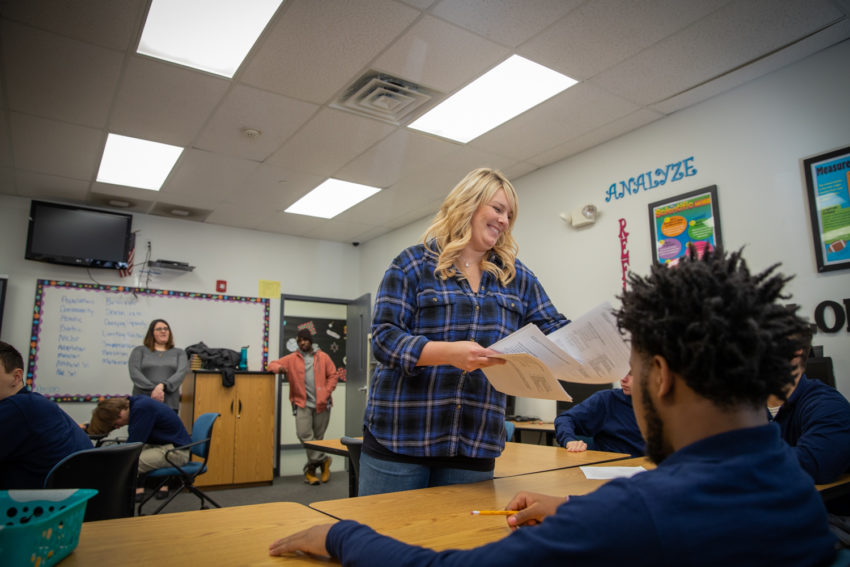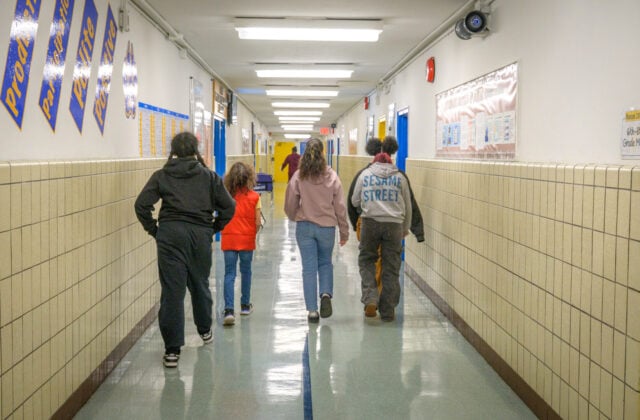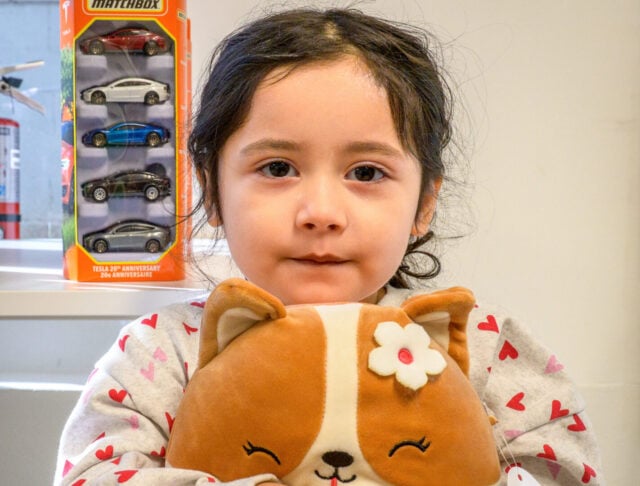Like every other student at Academy Programs school, 16-year-old Samuel* and his friend, 17-year-old David*, were ordered by the court to come here.
David got behind in school because there was no one in his life to keep him accountable academically. He became apathetic toward school and started hanging with the wrong crowd — he nearly dropped out. The day he decided to come back to school, he failed a random drug test. That’s what landed him at Academy Programs, an institutional school for troubled and vulnerable youth in Fairmount, West Virginia. He came with bad grades and a bad attitude, he says.
Samuel thought he had his new school figured out before he even started. A West Virginia state judge had just ordered him to attend Academy Programs. He was interested in school through about eighth grade. After that, he fell behind and couldn’t find the help he needed to keep up with his classmates. Sports kept him occupied and on track until high school. But increasing anxiety about studies and a few bad choices led him to trouble.
At 16, he had been through two other alternative school programs already. This place wouldn’t be any different, he thought.
“I’m just going to fake it til I make it,” he says. “Make it out of the program [and go home].”
But Academy Programs staff and World Vision have much higher hopes than that for Samuel, David, and all the other students.
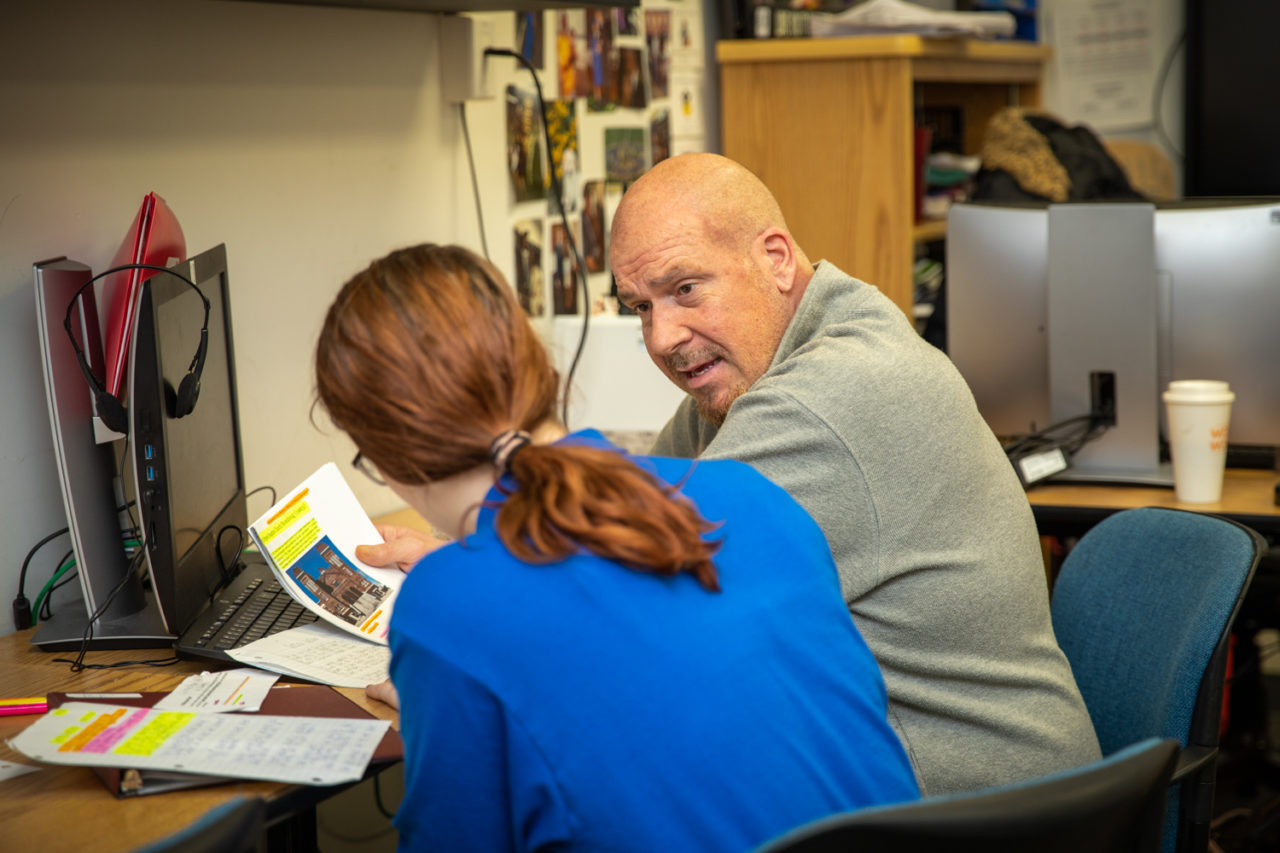
A school training youth for success
At any given time, Academy Programs houses, feeds, counsels, coaches, and educates about 70 of the toughest, least motivated middle- and high-school students from around the state. Of the 185 students who came through the program in 2018, the average grade-point average was a 1.38 when they entered the school. When they transitioned out, they carried a collective GPA of 3.0, says Principal Matt Kittle. Most incoming students — 84% of them — tested below their grade level in reading, as did 83% of students in math. While here, almost 4 out of 5 students increase their math and reading scores one grade level or more.
For the past 11 years, Academy Programs has been the highest-performing institutional school in West Virginia.
“We’re not miracle workers, but we’re getting them the support and motivation, the guidance and direction and tools to be successful,” Matt says.
He attributes their success in part to their partnership with World Vision’s essential supplies center in Philippi, West Virginia.
As a state-run school that operates more like a vocational college with dorms, 24-7 monitoring, counseling, and team-building services, budgets can be tight. Teachers and administrators must get creative to motivate and engage students. Their goal is to make learning come alive and prepare each student for the transition back to their home school, including to graduate or achieve their GED.
Like World Vision does with poverty alleviation work globally and in the U.S., school leaders look at what’s causing the students’ problems.
“By and large, we serve kids who would otherwise be in [jail] if they weren’t here,” says Operations Director Terry Collins. “Our job is to get at the root of the problem and try and instill something different than what got them here in the first place.”
Their common goal: motivate the unmotivated to achieve success in life and help them understand why that matters, Matt and Terry say. That means running a tight ship with strict rules and high standards for performance. But it also means celebrating all variety of achievements, like making your bed, choosing to hold your tongue when you’re angry, or maintaining a 3.4 GPA every week with no grades below a 75%.
Students at Academy Programs follow the state curriculum for their respective grade level. But they also get opportunities to complete supplementary online training and certificate programs, as well as on-site vocational training.
“Success breeds success. Failure breeds failure,” Terry says. “So the more successful experiences you have, the more success gets ingrained and you strive for success and don’t become the constant companion of failure.”
From day one, their goal is to set each student up for a successful transition back home.
Partnering with World Vision
World Vision provides food, furniture, and other supplies to the school on a regular basis. Occasionally, we provide items like drones, which prove to be highly sought-after incentives given to the top-performing students.
The blessing is twofold. The donations allow Matt to redirect money they would have spent on those items and instead pay extra tutors to provide more homework and Saturday-school help. Recently, Matt was able to hire an additional full-time math teacher thanks to the cost savings World Vision’s donations provided.
This all helps students make up credits toward graduation that they missed while skipping public school back home. When possible, the school also has extra money to send hard-working students on field trips or outings together.
“It’s guys like these guys (World Vision) who enable me to get creative to provide much more educational opportunities for children who are considered the highest at risk in the state,” Matt says. “By working with them, they’re touching kids from the entire state of West Virginia.”
This is all helping motivate and equip the unmotivated.
“The system works very well. It’s because it makes a powerful, lifelong difference in the lives of children. You would think, ‘How does World Vision in a warehouse in Philippi, West Virginia, impact the life of a child for decades to come that’s unforeseen?’ It happens every day here.”
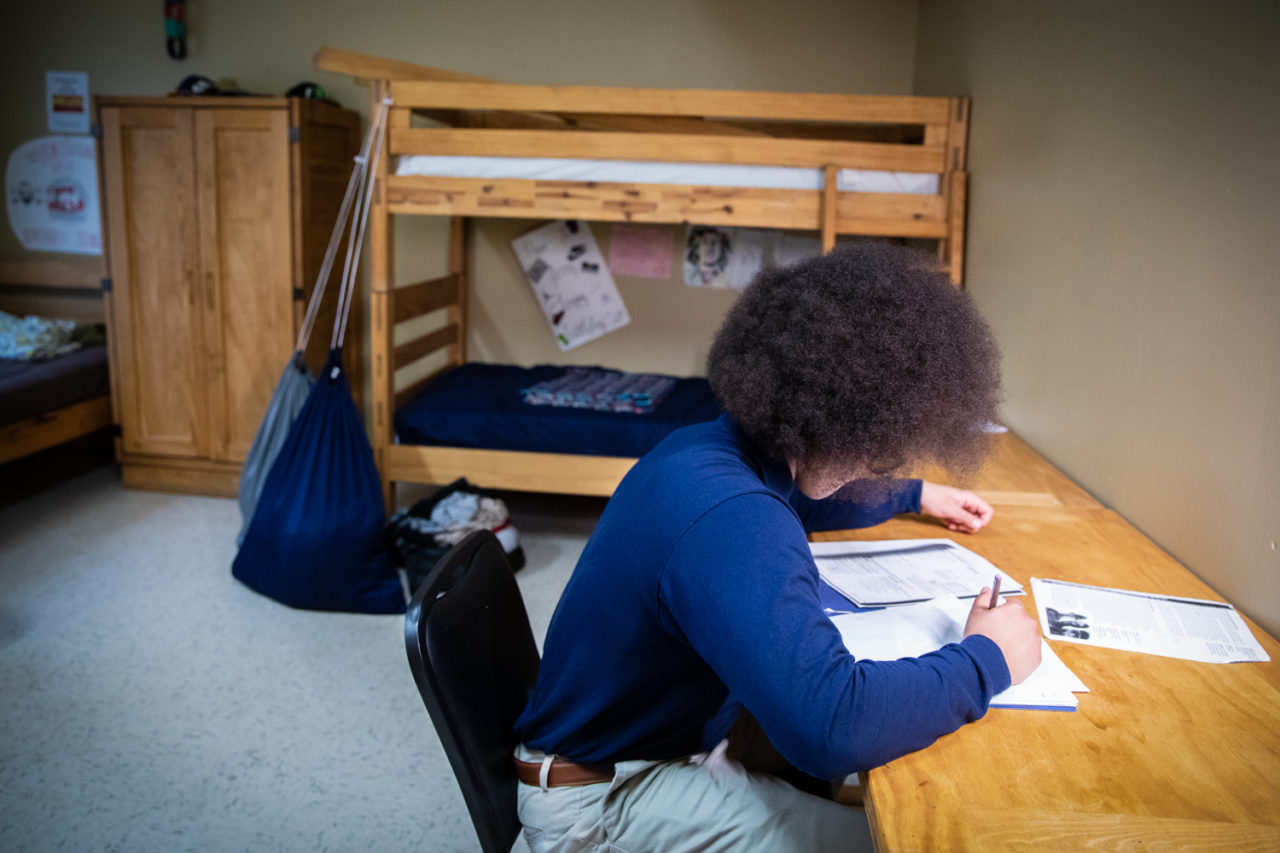
Living proof of impact
When David and Samuel first arrived, the school initially seemed overwhelming to them.
“I couldn’t even do ninth-grade-level math,” David says.
But that quickly changed. He says, “Now I’m taking Algebra 2 and passing it with an A.
“It’s like family coming around us to help.”
Six months after entering the program, David maintains a 3.8 GPA. He attributes some of his success to not having to worry about where his next meal will come from.
“Sometimes growing up, we didn’t have food,” he says. “Coming here, having three meals a day … you don’t have to worry about if there will be food tonight. That helped turn my attitude better. That helps my morale a lot. They’re actually providing for our needs.”
For Samuel, even though Academy Programs was his third placement in an institutional school, it was the first to work, he says. In his first 3 months in the school, his grades have improved.
“I like it here because I get the help that I need,” Samuel says. “Here, most of the staff is like having an older brother or older sister. Having somebody older trying to influence you to do the right thing, we don’t really look at them as staff. We look up to them as a mentor or role model.”
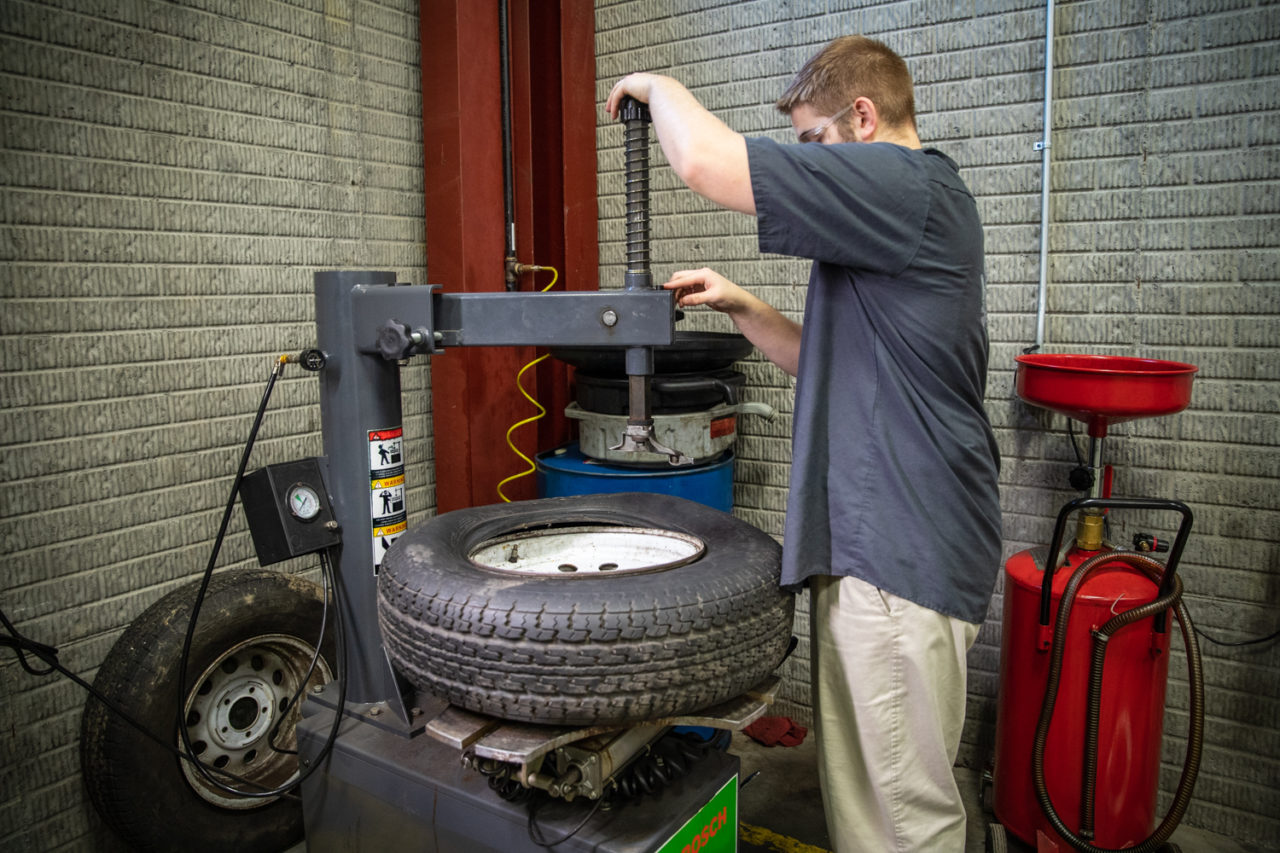
David got back on track and was able to transition back home. He graduated high school — on time — in May 2019. He wants to join the army and work as a mechanic.
“I’ve always wanted to work on cars,” David says. Academy Programs gave hands-on vocational and technical training courses, online and on-site. “I’ve learned a lot about cars. Now I know what I’m doing. I can diagnose a problem by myself and fix it with no help.”
Samuel still has time to narrow down his choices while at the school. But he’s thinking more confidently about his ability to pursue his dreams. He wants to work in the medical profession or as a wildlife biologist someday, he says. An active Boy Scout, he plans to work toward earning his Eagle Scout in the coming year.
“It (this school) brings people’s spirits up,” Samuel says. “Here, they make learning fun.”
Both young men are more hopeful and equipped for the future since coming to Academy Programs.
“Before coming here, I thought I was just going to be a high school dropout and just work at McDonald’s. I didn’t think I was going to go anywhere,” David says. “But I was wrong. This place puts a lot of new thoughts in your head and makes you challenge the bad ones.”
*Names changed to protect student’s identity.
